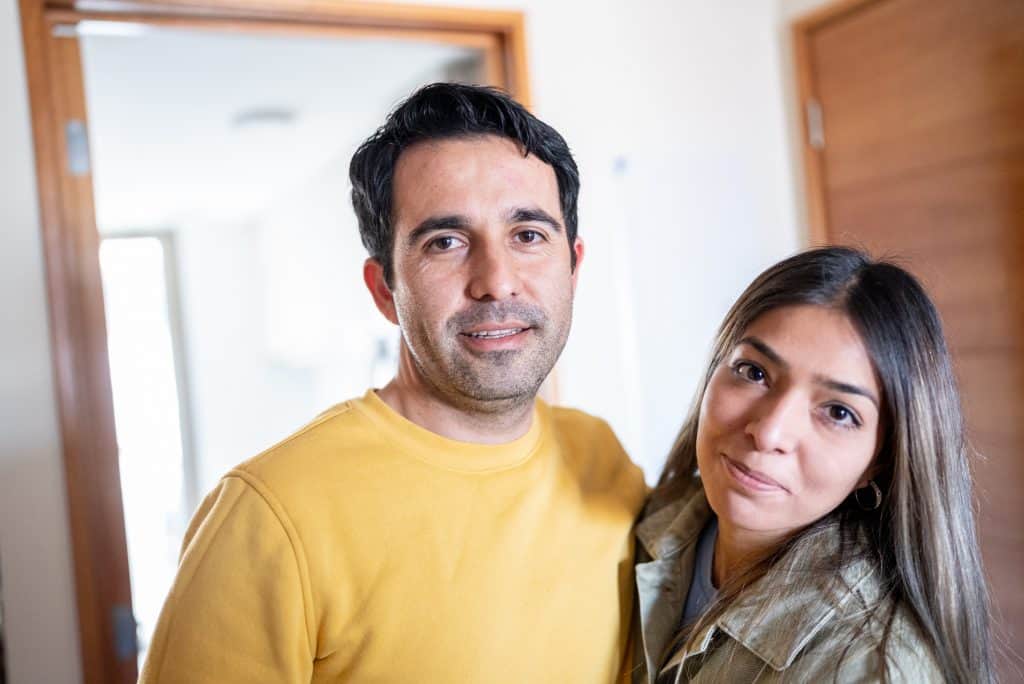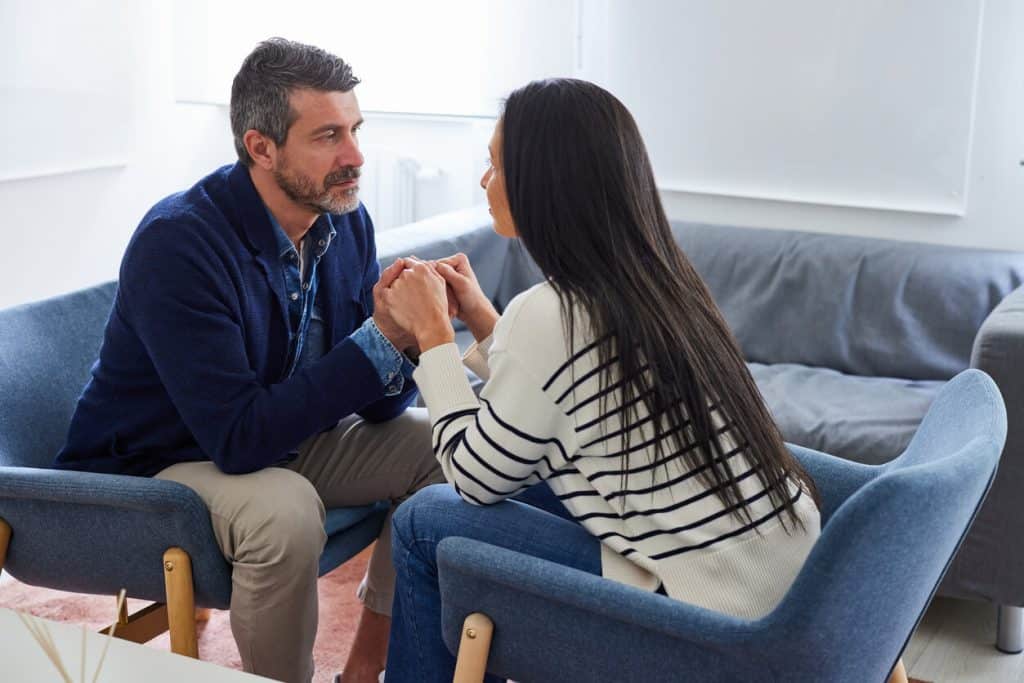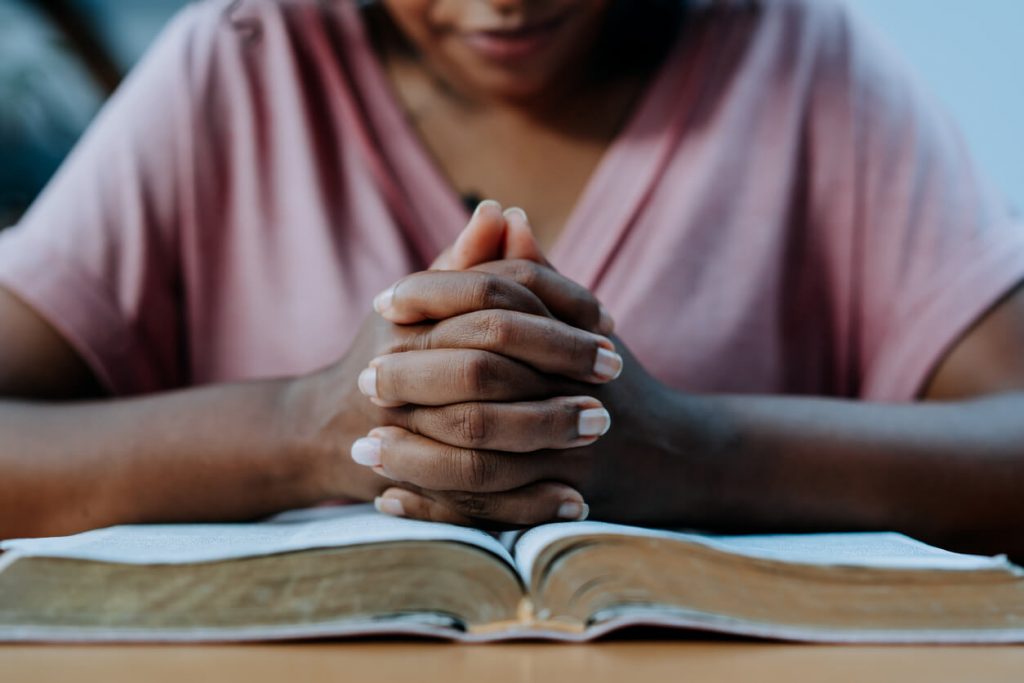When it comes time to move your relationship from dating to engagement, you’re probably going to wonder about his porn use—and it’s best to ask these questions before you get engaged.
He may be a wonderful person. He may love Jesus to distraction. He may love you with all his heart.
But unless your boyfriend has lived his entire life under a rock without internet access, he’s been exposed to porn.
If pornography is not something you want as a part of your future life together, then this is the time to understand the situation fully and set boundaries around what is not okay with you.
Approach the conversation purely as information-gathering. Try to keep calm, and listen as hard as you can. You need to understand. You need this information. You can make decisions later about what to do with the information. Even if the information is upsetting, it’s important.
10 Questions to Start Talking About Porn
1. How do you deal with internet pornography?
“I’m curious about how you deal with internet pornography. I know that pretty much everyone is exposed to porn and a lot of people use it regularly. What is it like for you?”
Assume that porn is an issue; reduce shame by normalizing it. Ask about his general, personal experience. This is a good test-the-waters question.
2. What’s your history with porn?
“I’d like to hear about the history and scope of your experience with porn. What is going on now?”
You need to know how much of his life is consumed by porn. How often does he use porn? Under what circumstances? Is it occasional use or constant use?
3. When were you first exposed to porn?
“Tell me about your first exposure to porn. How old were you? How did it happen? Who showed you?”
If porn exposure occurs in childhood, it may be a circumstance of abuse that often goes unrecognized. If this is the case, it’s really important for him to seek trauma-informed counseling.
4. What was your family’s response to porn?
“What was your family’s response to porn? Were you able to talk to them and get support?”
Many families have patterns of silence and shame around sexuality in general, and porn in particular. His previous experiences around sexuality and porn may have created unhealthy shame cycles that continue to drive current behavior.
5. Do you have support for dealing with porn?
“Who do you talk to about this now? Who supports you currently?”
Having current, ongoing support is a good sign of personal responsibility. Lack of support may indicate undue shame.
6. Do you have accountability software on your devices?
“What software do you use? Who gets your reports?”
Having accountability software is a good sign of personal responsibility.
7. Can I look at your phone?
“Would you be willing to let me see all your devices, at any time?”
Overprotectiveness of personal devices is a red flag.
8. Do you have a plan for porn?
“What’s your plan for dealing with porn? Tell me about a time when that plan worked well for you. Tell me about a time when your plan failed. What do you do when your plan fails?”
Everyone is going to succeed and fail at various times. Perfection is not the goal; personal responsibility is the goal. Someone who fails and then can’t recover is likely caught in shame cycles and needs more support in therapy toward recovery.
9. What do think about sexual violence?
“What do you think about the violence toward women that’s often portrayed in porn?”
There’s no way of escaping the reality that porn portrays great violence toward women. Women are often seen as receptacles and objects. If you don’t want to be treated like a receptacle or an object, it’s good to have this conversation ahead of time.
10. How should a man act when it comes to sex?
“How has the portrayal of masculinity in porn impacted you?”
Porn often portrays men as unable or unwilling to control themselves sexually and entitled to take what they want without expectation of a relationship. Research shows that extended exposure to porn increases male entitlement toward women.
For the Boyfriend Who Hasn’t Looked at Porn
If your boyfriend tells you that he doesn’t look at porn, has never looked at porn, and will never look at porn, you should ask some follow-up questions.
“I would love to hear how you’ve managed to avoid something that most other people find really difficult to deal with? How did that happen for you?”
So maybe your boyfriend is that one guy who’s been living under a rock. Maybe he’s not being honest with you. Or maybe there’s something else going on entirely. Whatever it is, you need to know. It’s wise to ask follow-up questions.
5 Questions to Ask Yourself
As the conversation progresses, keep track of how you’re feeling about it. Do you think he’s telling you the truth? Why or why not? Is he upset or angry with you for asking these questions? Why would someone be upset about these questions?
1. What does it mean for your relationship if you’re not allowed to ask questions like this?
2. How much blame do you hear being placed on others/women/God/culture/Satan?
3. How much personal responsibility is he currently taking, in terms of real action?
If he doesn’t have a plan, doesn’t have support, and doesn’t think he needs any of that, ask yourself:
4. What are my boundaries here?
5. How much am I willing to give to someone who doesn’t seem willing to pursue good sexual health for himself?
Listen to yourself.
Trust yourself.
No matter what you learn, be courageous in choosing a healthy life for yourself. If you are brave enough to have this kind of tough conversation, you are brave enough to make any hard choices that come with facing the truth honestly.
You get to decide what is okay and not okay with you. You don’t have to enter into relationships that are not right for you.
None of us are perfect, but we are all capable—male and female—of taking responsibility and being partners who participate in living up to our own values.
Have the hard conversations now, for the health of your future.










0 comments.